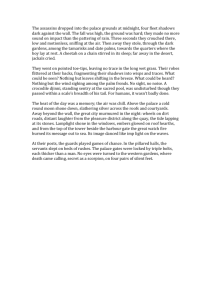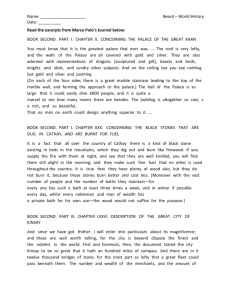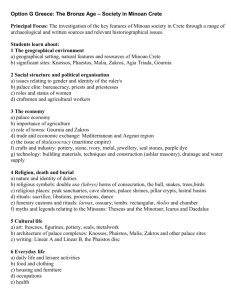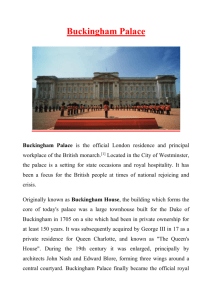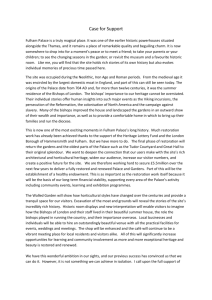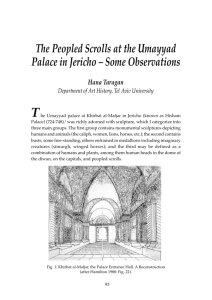III
advertisement
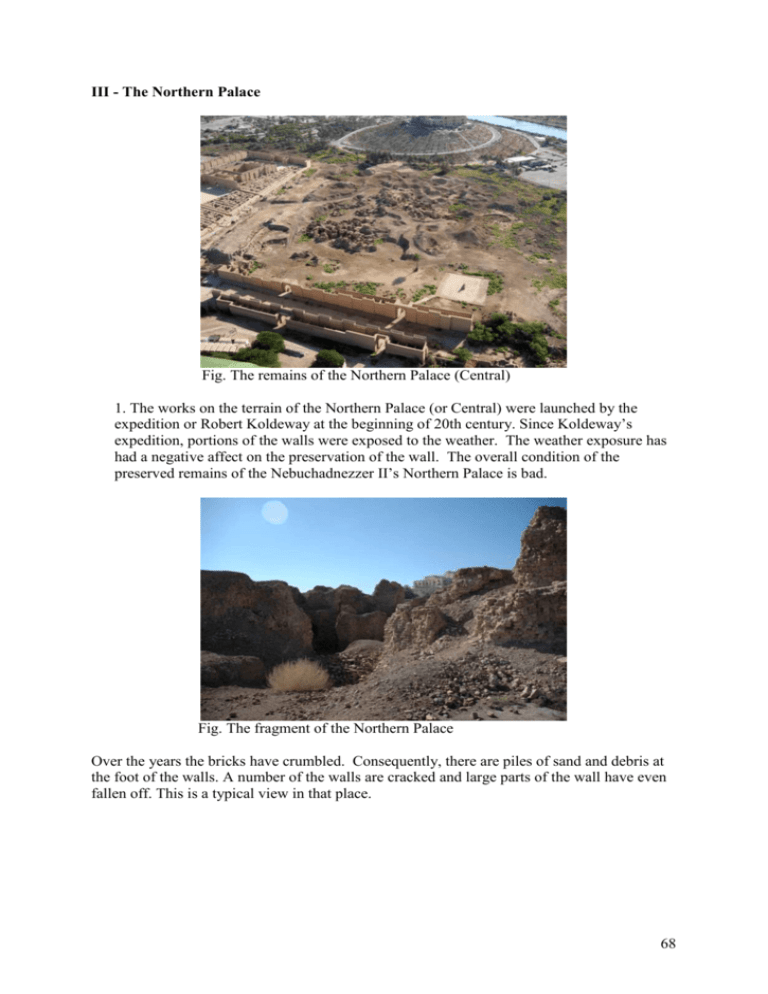
III - The Northern Palace Fig. The remains of the Northern Palace (Central) 1. The works on the terrain of the Northern Palace (or Central) were launched by the expedition or Robert Koldeway at the beginning of 20th century. Since Koldeway’s expedition, portions of the walls were exposed to the weather. The weather exposure has had a negative affect on the preservation of the wall. The overall condition of the preserved remains of the Nebuchadnezzer II’s Northern Palace is bad. Fig. The fragment of the Northern Palace Over the years the bricks have crumbled. Consequently, there are piles of sand and debris at the foot of the walls. A number of the walls are cracked and large parts of the wall have even fallen off. This is a typical view in that place. 68 Fig. Part of the Northern Palace showing crumbled walls Fig. Part of the Northern Palace showing crumbled walls There is groundwater close to the surface in the Babylon area. The ruins are being damaged by the groundwater infiltrating the bricks. Fig. Northern Palace with the lower level dampened by groundwater 69 On some parts of the walls salt residue that destroys the antique construction is visible. Fig. Northern Palace with salt residue on lower portions In the remains of the western part of the Northern Palace is a hole which runs underneath the fragment of a wall. Fig. The hole in the western part of the Northern Palace Description elaborated and photograph taken between 5th and 30th November 2004 by Agnieszka Dolatowska Translated into English Piotr Trybuła, 1st edition by Christopher Miller, 2nd edition Steven Bein 70
